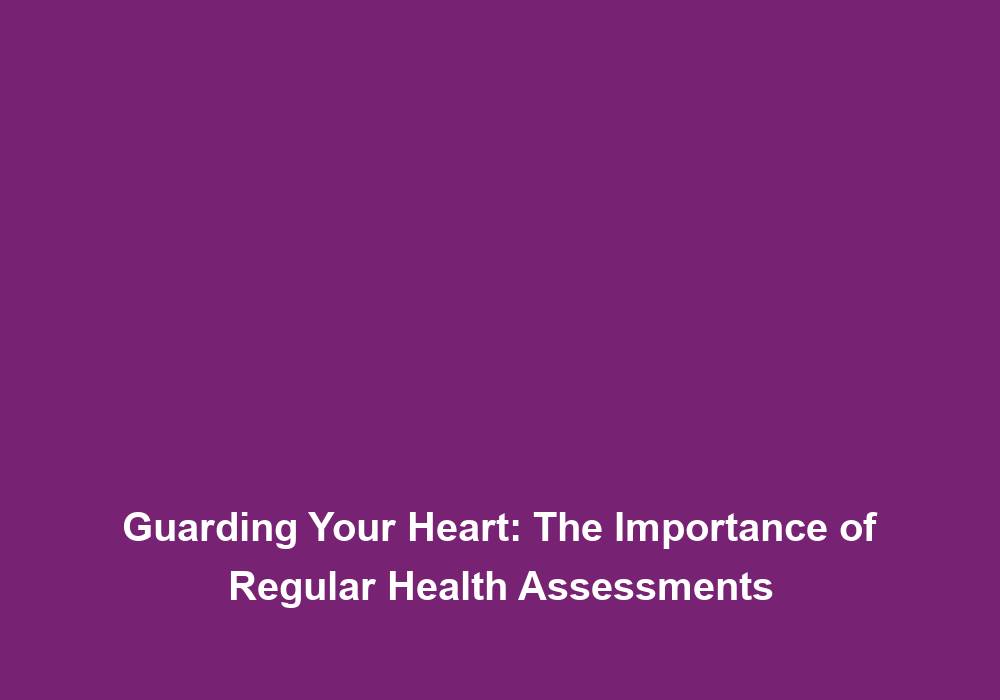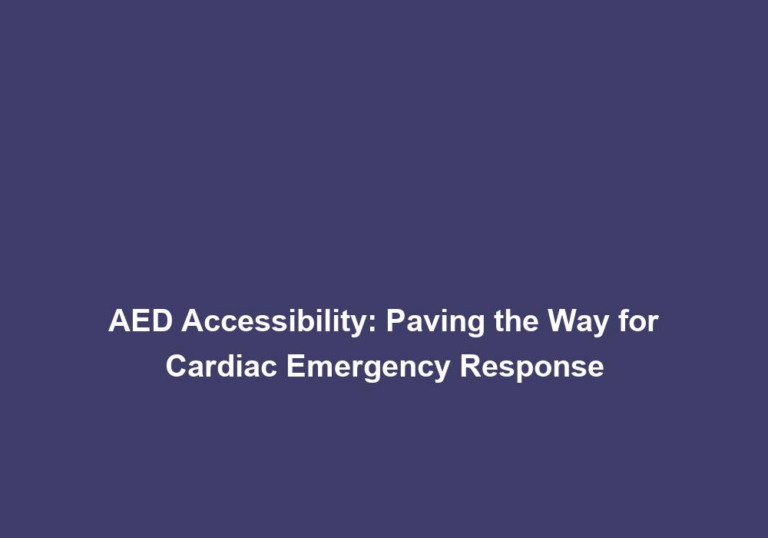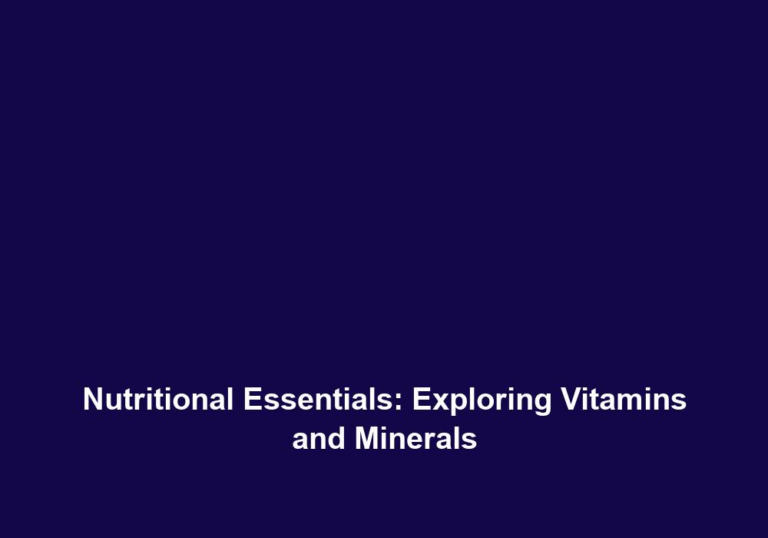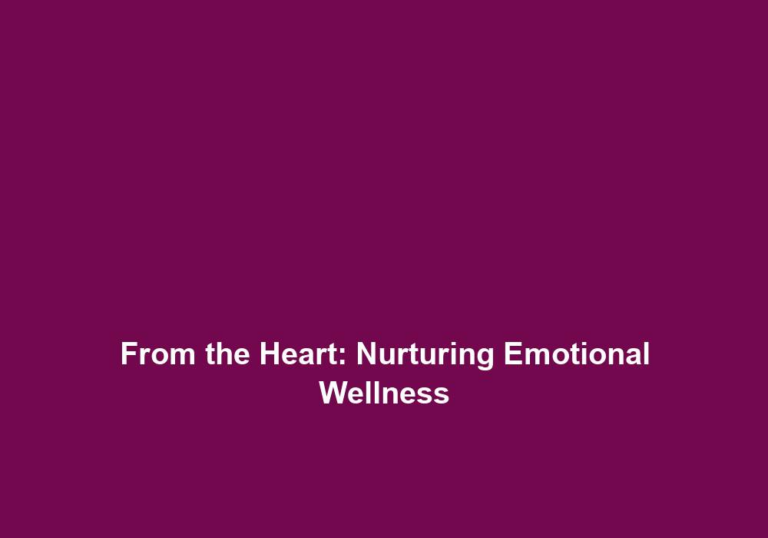Guarding Your Heart: The Importance of Regular Health Assessments
Maintaining a healthy heart is crucial for overall well-being. As the epicenter of our cardiovascular system, the heart plays a vital role in pumping oxygen-rich blood throughout the body. To ensure its optimal functionality, regular health assessments are essential. In this article, we will explore the significance of these assessments and the steps you can take to protect your heart.
The Importance of Regular Health Assessments
- Preventing Silent Killers:
Many heart conditions, such as high blood pressure, high cholesterol, and diabetes, often develop without noticeable symptoms. Regular health assessments can detect these silent killers in their early stages, allowing for timely intervention and treatment. By identifying and managing these risk factors, you can significantly reduce your chances of developing heart disease.
Regular health assessments are crucial for identifying and managing silent killers like high blood pressure, high cholesterol, and diabetes. These conditions often develop without noticeable symptoms, making it important to detect them early through regular assessments. By identifying these risk factors, healthcare professionals can intervene and provide timely treatment. Managing these risk factors can significantly reduce the chances of developing heart disease.
Heart disease is a leading cause of death worldwide. Regular health assessments, including physical examinations, blood tests, and imaging tests, can help detect the presence of heart disease or any underlying conditions that may contribute to its development. Early detection enables healthcare professionals to implement appropriate treatment plans and lifestyle modifications, minimizing the risk of complications.
Regular health assessments play a crucial role in detecting heart disease and underlying conditions that may contribute to its development. Through physical examinations, blood tests, and imaging tests, healthcare professionals can identify the presence of heart disease at an early stage. Early detection allows for timely intervention, enabling healthcare professionals to implement appropriate treatment plans and lifestyle modifications. This early intervention minimizes the risk of complications associated with heart disease.
- Monitoring Existing Heart Conditions:
For individuals already diagnosed with heart disease or related conditions, regular health assessments are vital to monitor the effectiveness of ongoing treatments. These assessments help healthcare providers evaluate the progress, make necessary adjustments to medications or therapies, and prevent further deterioration of heart health.
Regular health assessments are essential for individuals already diagnosed with heart disease or related conditions. These assessments enable healthcare providers to monitor the effectiveness of ongoing treatments and make necessary adjustments to medications or therapies. By monitoring the progress of the treatment, healthcare professionals can prevent further deterioration of heart health and ensure the best possible outcomes for patients.
Key Components of a Comprehensive Health Assessment
A thorough health assessment comprises several components that collectively provide a comprehensive evaluation of your heart health. These components may include:
1. Medical History Review
During a health assessment, your healthcare provider will review your medical history, including any previous heart conditions, surgeries, or family history of heart disease. This information helps identify potential risk factors and guides the overall assessment process.
A comprehensive health assessment begins with a review of your medical history. Your healthcare provider will carefully review any previous heart conditions, surgeries, or family history of heart disease. This information is crucial for identifying potential risk factors and guiding the overall assessment process. By understanding your medical history, healthcare professionals can tailor the assessment to your specific needs.
2. Physical Examination
A physical examination involves various tests and measurements to assess your heart health. Your healthcare provider may check your blood pressure, listen to your heart for any abnormalities, evaluate your pulse, and examine other vital signs indicative of heart function. They may also assess your overall physical fitness and discuss any symptoms or concerns you may have.
The physical examination is a key component of a comprehensive health assessment. During this examination, your healthcare provider will conduct various tests and measurements to assess your heart health. These may include checking your blood pressure, listening to your heart for any abnormalities, evaluating your pulse, and examining other vital signs that indicate the function of your heart. Additionally, your healthcare provider may assess your overall physical fitness and discuss any symptoms or concerns you may have. This thorough examination provides valuable insights into your heart health and helps guide further evaluation and treatment.
3. Blood Tests
Blood tests are crucial in assessing heart health. These tests measure cholesterol levels, triglycerides, blood sugar, and other biomarkers related to heart disease. By analyzing these results, healthcare professionals can identify any abnormalities and determine the appropriate course of action.
Blood tests play a vital role in assessing heart health. These tests measure various biomarkers related to heart disease, including cholesterol levels, triglycerides, and blood sugar. By analyzing the results of these tests, healthcare professionals can identify any abnormalities and determine the appropriate course of action. Blood tests provide valuable insights into your heart health and help guide the development of personalized treatment plans.
4. Imaging Tests
Imaging tests provide a closer look at your heart’s structure and function. These tests may include:
- Electrocardiogram (ECG): An ECG measures the electrical activity of your heart, helping identify irregular heart rhythms and potential underlying heart conditions.
- Echocardiogram: This test uses sound waves to create images of the heart’s chambers, valves, and overall function. It helps diagnose structural abnormalities, heart muscle damage, and other cardiac conditions.
- Stress Test: A stress test evaluates heart performance during physical activity. It helps determine how well your heart functions under stress and can detect signs of inadequate blood flow to the heart muscles.
Imaging tests are essential for evaluating your heart’s structure and function. These tests provide detailed information about the condition of your heart and help diagnose various heart conditions. The commonly used imaging tests include an electrocardiogram (ECG), which measures the electrical activity of your heart and helps identify irregular heart rhythms and potential underlying heart conditions. An echocardiogram uses sound waves to create images of the heart’s chambers, valves, and overall function. This test helps diagnose structural abnormalities, heart muscle damage, and other cardiac conditions. Additionally, a stress test evaluates your heart’s performance during physical activity, providing valuable information about how well your heart functions under stress and detecting signs of inadequate blood flow to the heart muscles.
5. Lifestyle Assessment
Assessing your lifestyle habits is an essential part of heart health evaluations. Your healthcare provider may discuss factors such as diet, physical activity, smoking, alcohol consumption, and stress levels. Identifying unhealthy behaviors and providing guidance on adopting healthier habits can significantly contribute to heart disease prevention.
In addition to medical evaluations, assessing your lifestyle habits is crucial for maintaining a healthy heart. During a health assessment, your healthcare provider will discuss various lifestyle factors that can impact your heart health, such as diet, physical activity, smoking, alcohol consumption, and stress levels. By identifying unhealthy behaviors and providing guidance on adopting healthier habits, healthcare professionals can significantly contribute to heart disease prevention. Lifestyle assessments play a vital role in promoting overall cardiovascular wellness.
Tips for Maintaining a Healthy Heart
In addition to regular health assessments, you can take proactive steps to guard your heart and promote overall cardiovascular wellness. Here are some key tips:
- Adopt a Heart-Healthy Diet: Consume a balanced diet rich in fruits, vegetables, whole grains, lean proteins, and healthy fats. Limit your intake of saturated and trans fats, cholesterol, sodium, and added sugars.
Maintaining a heart-healthy diet is crucial for promoting heart health. Consume a balanced diet that includes a variety of fruits, vegetables, whole grains, lean proteins, and healthy fats. Limit your intake of saturated and trans fats, cholesterol, sodium, and added sugars. By adopting a heart-healthy diet, you can reduce the risk of developing heart disease and support overall cardiovascular wellness.
- Engage in Regular Physical Activity: Aim for at least 150 minutes of moderate-intensity aerobic exercise or 75 minutes of vigorous aerobic exercise each week. Incorporate strength training exercises to enhance cardiovascular fitness.
Regular physical activity is essential for maintaining a healthy heart. Aim for at least 150 minutes of moderate-intensity aerobic exercise or 75 minutes of vigorous aerobic exercise each week. Additionally, incorporate strength training exercises to enhance cardiovascular fitness. Regular physical activity helps improve heart health, lower blood pressure, reduce the risk of heart disease, and promote overall well-being.
- Quit Smoking: Smoking damages blood vessels and significantly increases the risk of heart disease. Seek professional help and support to quit smoking and improve your heart health.
Quitting smoking is one of the most important steps you can take to protect your heart. Smoking damages blood vessels and significantly increases the risk of heart disease. Seek professional help and support to quit smoking and improve your heart health. By quitting smoking, you can greatly reduce the risk of heart disease and improve your overall cardiovascular wellness.
- Manage Stress: Chronic stress contributes to heart disease. Practice stress management techniques such as meditation, deep breathing exercises, yoga, or engaging in hobbies to reduce stress levels.
Managing stress is crucial for maintaining a healthy heart. Chronic stress contributes to the development of heart disease. Practice stress management techniques such as meditation, deep breathing exercises, yoga, or engaging in hobbies to reduce stress levels. By effectively managing stress, you can reduce the risk of heart disease and promote overall well-being.
- Maintain a Healthy Weight: Excess weight strains the heart and increases the risk of heart disease. Maintain a healthy body weight through a combination of regular exercise and a balanced diet.
Maintaining a healthy weight is essential for heart health. Excess weight strains the heart and significantly increases the risk of heart disease. To maintain a healthy weight, engage in regular exercise and follow a balanced diet. By maintaining a healthy weight, you can reduce the risk of heart disease and support overall cardiovascular wellness.
Conclusion
Prioritizing your heart health through regular health assessments is paramount. These assessments help identify potential risk factors, detect heart disease or related conditions early on, and monitor existing conditions. By adopting a heart-healthy lifestyle and seeking professional guidance, you can take control of your cardiovascular well-being and guard your heart against potential health issues. Remember, prevention is the key to a healthy heart!







